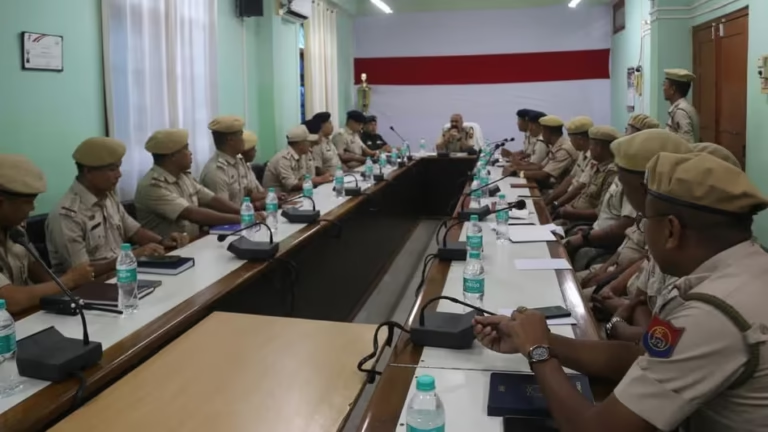Manipur Rifleman Allegedly Dies by Suicide at Sugnu Outpost
News Summary
On June 5, 2025, a tragic incident occurred at the Khongnang Khoisabi Sugnu outpost in Manipur’s Kakching district. A 33-year-old rifleman of the 8th Manipur Rifles, identified as K Ibomcha, allegedly died by suicide using his service INSAS rifle. The incident took place while he was on duty. Authorities have registered a case and are investigating the circumstances surrounding his death. The body has been sent to the Regional Institute of Medical Sciences in Imphal for further procedures.
In-Depth Analysis: Understanding the Tragedy and Its Implications
1. The Incident: A Closer Look
The sudden demise of Rifleman K Ibomcha has sent shockwaves through the community and the security forces. Serving at the Khongnang Khoisabi Sugnu outpost, Ibomcha’s decision to end his life using his service weapon raises several questions about the mental well-being and support systems available to personnel in such demanding roles.
2. The Human Element: Who Was K Ibomcha?
Hailing from Sugnu Bazaar in the Kakching district, Ibomcha was not just a soldier but also a son, a friend, and a community member. His untimely death underscores the often-overlooked emotional and psychological challenges faced by those in uniform.
3. The Broader Context: Mental Health in the Armed Forces
Mental health issues among armed forces personnel are a growing concern globally. Factors such as prolonged deployments, exposure to conflict, and the inherent stresses of military life can contribute to psychological strain. It’s imperative to recognize and address these challenges proactively.
FAQs
Q1: What measures are in place to support the mental health of armed forces personnel?
A1: Many armed forces have initiated mental health programs, including counseling services, stress management workshops, and helplines. However, the effectiveness and accessibility of these services can vary, highlighting the need for continuous evaluation and improvement.
Q2: How can communities support the mental well-being of their local armed forces members?
A2: Communities can play a pivotal role by fostering an environment of understanding and support. Organizing awareness campaigns, facilitating open dialogues about mental health, and offering community-based support can be beneficial.
Q3: Are there any warning signs that can help identify someone struggling with mental health issues?
A3: Yes, signs can include withdrawal from social interactions, changes in behavior or mood, decreased performance, and expressions of hopelessness. Recognizing these signs early can lead to timely intervention.
Q4: What steps can institutions take to prevent such tragedies in the future?
A4: Institutions should implement comprehensive mental health programs, ensure regular check-ins with personnel, provide training to recognize signs of distress, and create a culture where seeking help is encouraged and supported.
Q5: How can individuals in high-stress professions manage their mental health?
A5: Regular self-care practices, seeking professional help when needed, maintaining open communication with peers and superiors, and engaging in stress-relieving activities can aid in managing mental health.




